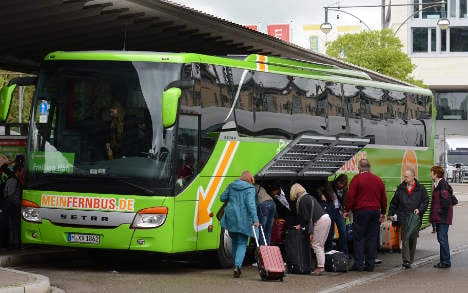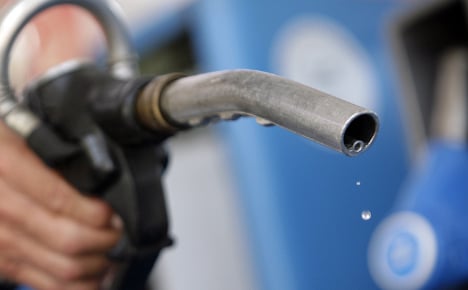Deutsche Bahn's monopoly on long distance travel in Germany ended in January 2013 with a multi-party agreement that was intended to provide an environmentally-friendly and cheap alternative to cars and rising fuel prices.
According to a report published by the Federal Association of German bus and coach operators on Monday, there are 5,100 long-haul bus journeys operating in Germany each week. That compares to 1,540 in January – an increase of 230 percent.
Berlin is the most sought-after travel destination, with every fifth online search for the capital. Munich (7.2 percent),Hamburg (6.5 percent) and Cologne (4.4 percent) are the next most popular destinations.
Goeuro.de, which released the online search figures, says it expects around a million passengers to travel by coach around the festive period.
The number of bus routes has also expanded substantially from 62 to 138. Smaller cities in the southern states of Bavaria and Baden-Württemberg, which have not previously been served by long-distance buses, are said to have benefited most.
Private company MeinFernbus, which was founded in 2011, has shot to the top to clinch the largest market share with 39.7 percent, outperforming Deutsche Bahn (21.7 percent), Flixbus (14.8 percent) ADAC Postbus (7.5 percent) and city2city (4.8 percent).
None of this seems to bode well for train operators, who have also faced competition from budget airlines in recent years.
But some experts are advising passengers not to abandon train travel yet. Travel expert Heidi Tischmann, as cited in the Hamburger Abendblatt, points out that children often travel for free on trains and that people with a disability are often allowed to bring a carer on board for free.
While it is generally cheaper to travel by bus than by train, journey times are often considerably longer by bus.
When it comes to travelling in comfort, there is a large discrepancy on buses, with the amount of leg space ranging between 72 and 87 centimetres . Some coaches charge for luggage and only some offer internet access.
"The rapid increase in routes shows what vigour exists in this still-young market," Christiane Leonard, managing director of the Omnibus Association BDO, told the Tagesspiegel newspaper, adding that terminals will need to be built to serve new destinations and to provide access to local transport.
The era of ultra-cheap bus travel is unlikely to last forever however, with experts predicting that prices will bottom out once companies have established their share of the market.



 Please whitelist us to continue reading.
Please whitelist us to continue reading.
Member comments